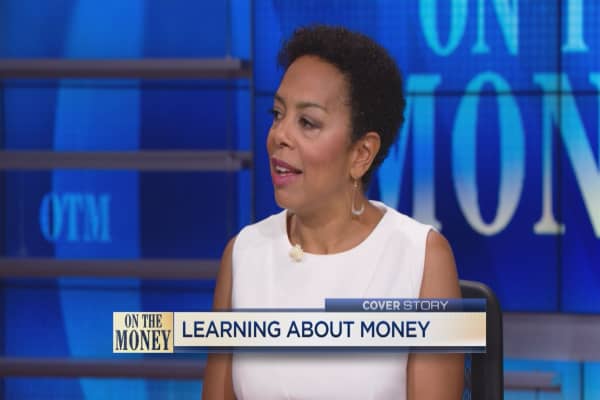
Financial education in schools has come to a halt in recent years.
Only 17 states require high school students to take a class in personal finance — a number that hasn’t budged in the past four years, according to the newly released 2018 Survey of the States: Economic and Personal Finance Education in Our Nation’s Schools.
More than half of states still don’t require high school students to take an economics course, it found. And since 2014, the number of states that require students to be tested on economics concepts has stayed flat at 16.
“The majority of U.S. states are failing our students by declining to offer these fundamental courses which are critical to their financial stability and security later in life,” said Nan J. Morrison, president and CEO of the Council for Economic Education, which produced the report using data from the 50 states and the District of Columbia.
Click on the map below to see how each state fares.
Another recent report, by Champlain College, surveyed states’ effectiveness at producing financially literate high school graduates. Only five states received an A — Alabama, Missouri, Tennessee, Utah and Virginia — and 30 percent of states were graded either D or F.
Personal finance lessons are more important than ever for students, said Annamaria Lusardi, academic director of the Global Financial Literacy Excellence Center. She pointed to the fact that student loan debt in the country has soared to $1.48 trillion.
“In high school, students decide where to go to college and how to finance their education,” Lusardi said.
To be sure, there are many efforts to bring up money in the classroom.
Ohio, ranked as the fourth-worst state in financial literacy, introduced a bill in 2016 to provide more than $300,000 to Smart Ohio, a program that trains teachers in economics. Some 75,000 students are expected to benefit from it by 2021.
A group of students from Lexington, Massachusetts, started “Project Finance” to push for more schools to teach students about money. Last year, the Council for Economic Education requested the state board of education review its standards for financial literacy for implementation.
Yet not everyone agrees that personal finance courses are the most successful way to improve students’ finances.
A 2015 study in the Journal of Human Resources found that mathematics classes were actually more effective in training students to participate in financial markets, invest their income, manage their credit and avoid foreclosures.
But there is also research that makes a case for teaching students about personal finances. A 2014 Federal Reserve report found students exposed to personal finance education had credit scores that were 7 to 29 points higher than those of students who didn’t have such classes.
Morrison said that math classes only become more effective when they’re integrated with personal finance.
“It makes the math real,” she said. “Every kid is interested in money.”
To combat the slow-down in financial literacy for students:
Push for financial learning at your child’s school
“Parents can be super effective in creating change in their schools,” said Morrison. “Go to your school and say, ‘Hey, how do we go about getting this integrated?'”
Parents should ask for a required class on financial literacy — just like literature or geography — as opposed to an elective or after-school lesson.
“This is not a class where we’re teaching the common wisdom of the man on the street,” Lusardi said. “It’s a scientific class.”
Websites like econedlink.org offer resources for parents and educators, such as video lessons on the federal budget and unemployment.
Take on a teaching role, too
“If the school doesn’t do it, they have to do it,” Lusardi said, speaking about parents.
Yet about 70 percent of parents say they’re reluctant to talk about money with their children, according to a T. Rowe Price survey. Morrison said children can only benefit from financial conversationsand hands-on experience, though.
“It’s not scary,” she said. “It gives your kids a sense of ownership.”
Parents should talk to their children about planning for the future and caring about money, Lusardi said, as well as all of the standards for financial literacy put out by the Council for Economic Education.
These lessons will benefit them in the end.
“If you teach your children about financial literacy, they don’t have to come back to live in your basement after college,” Lusardi said.
[“Source-cnbc”]


